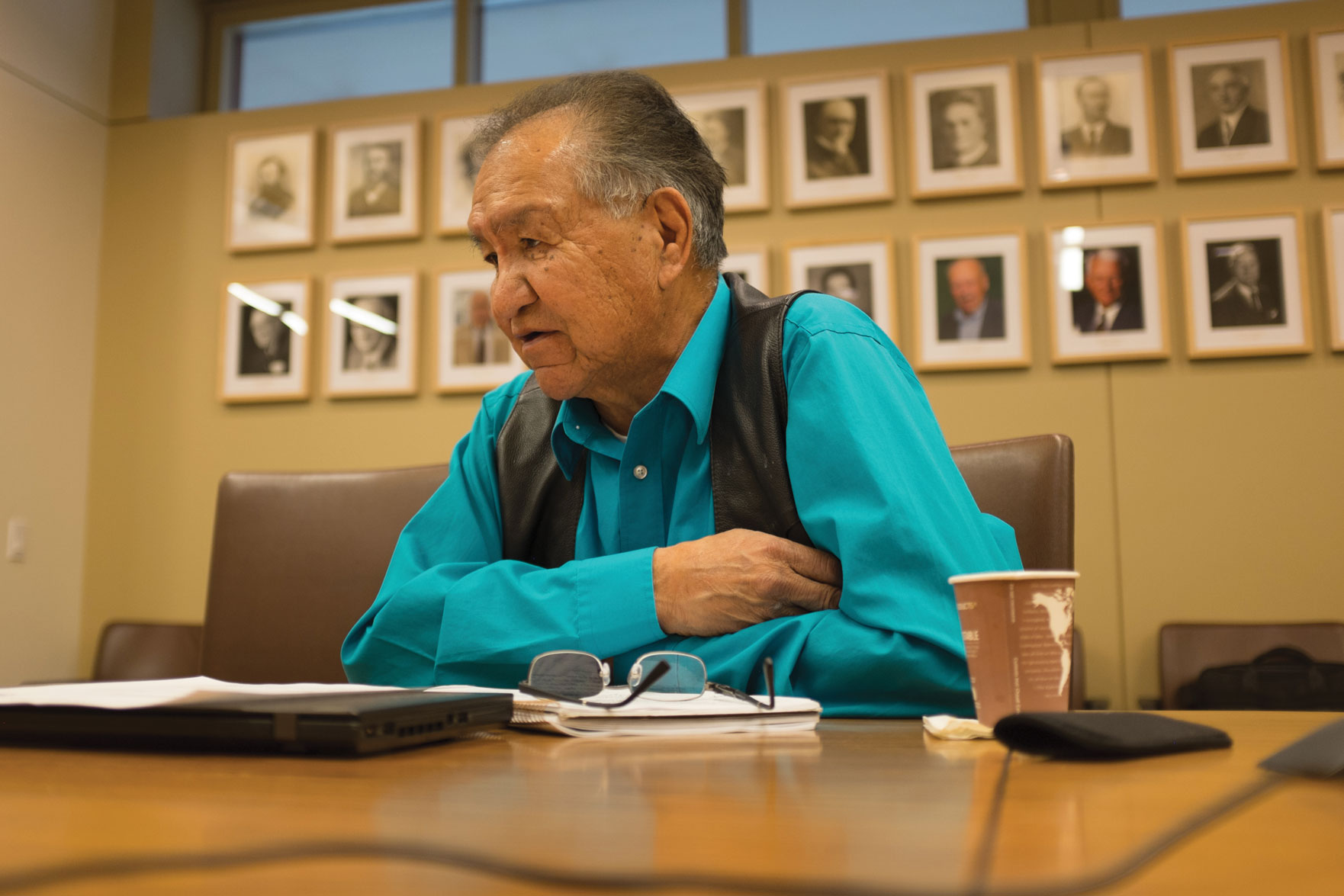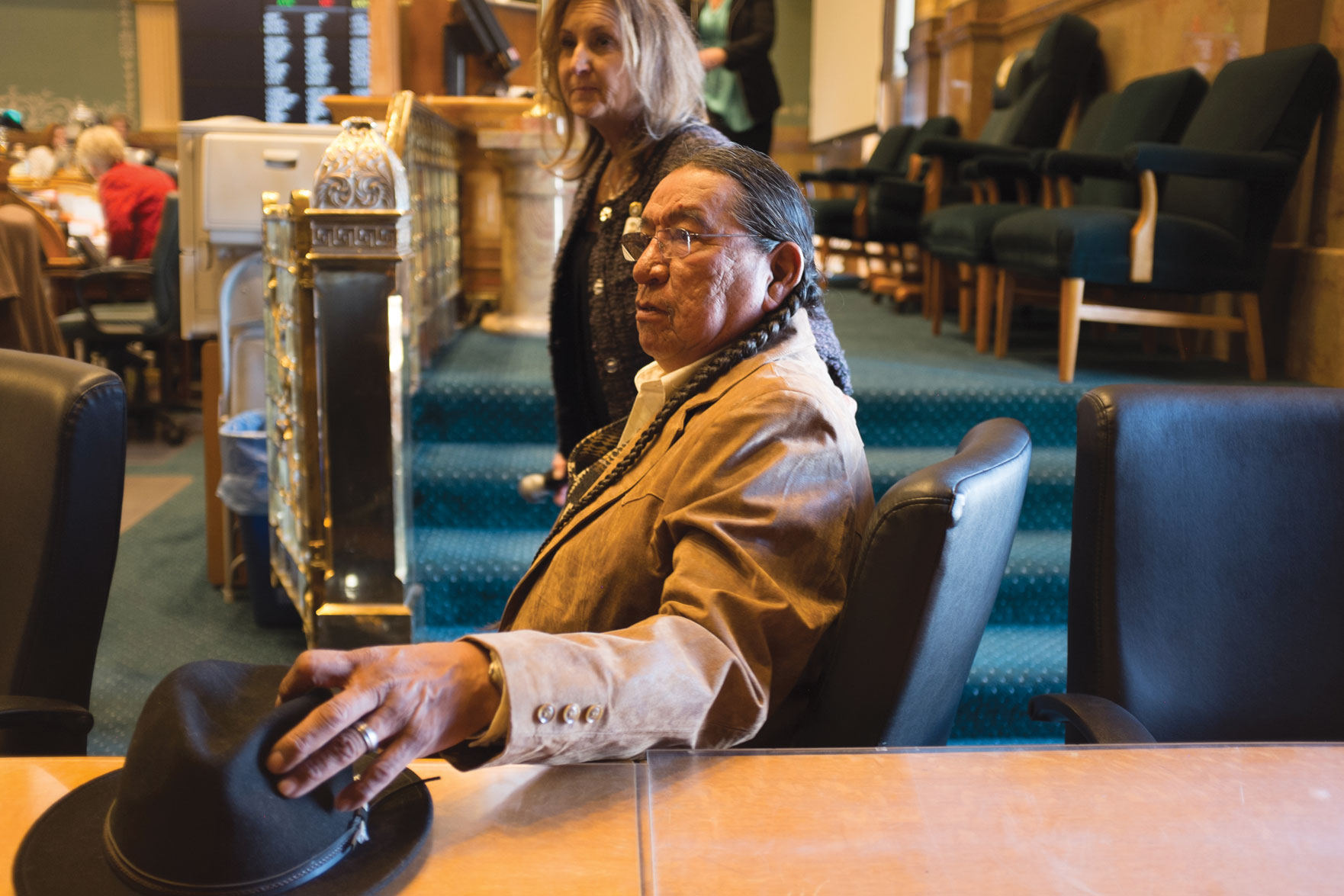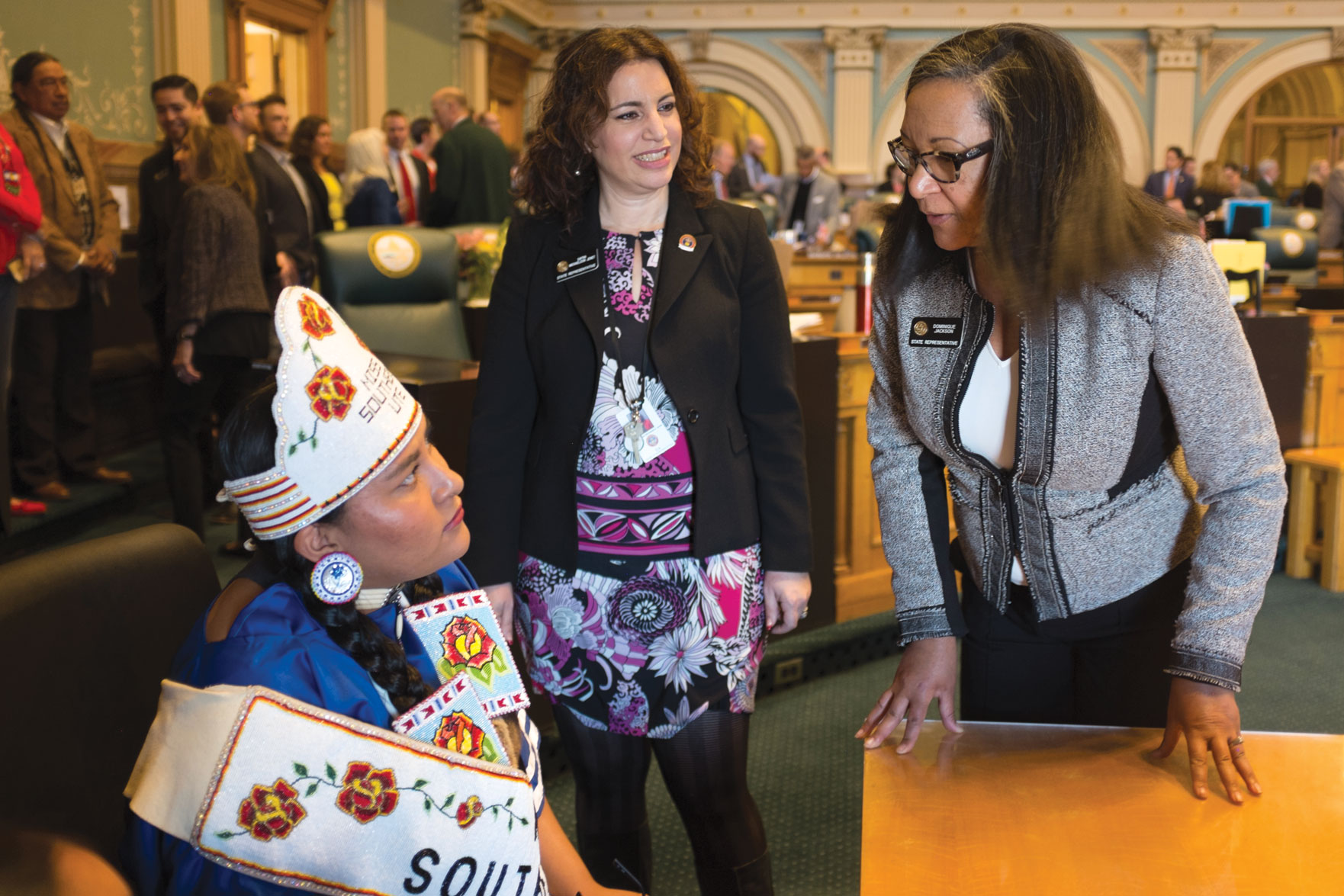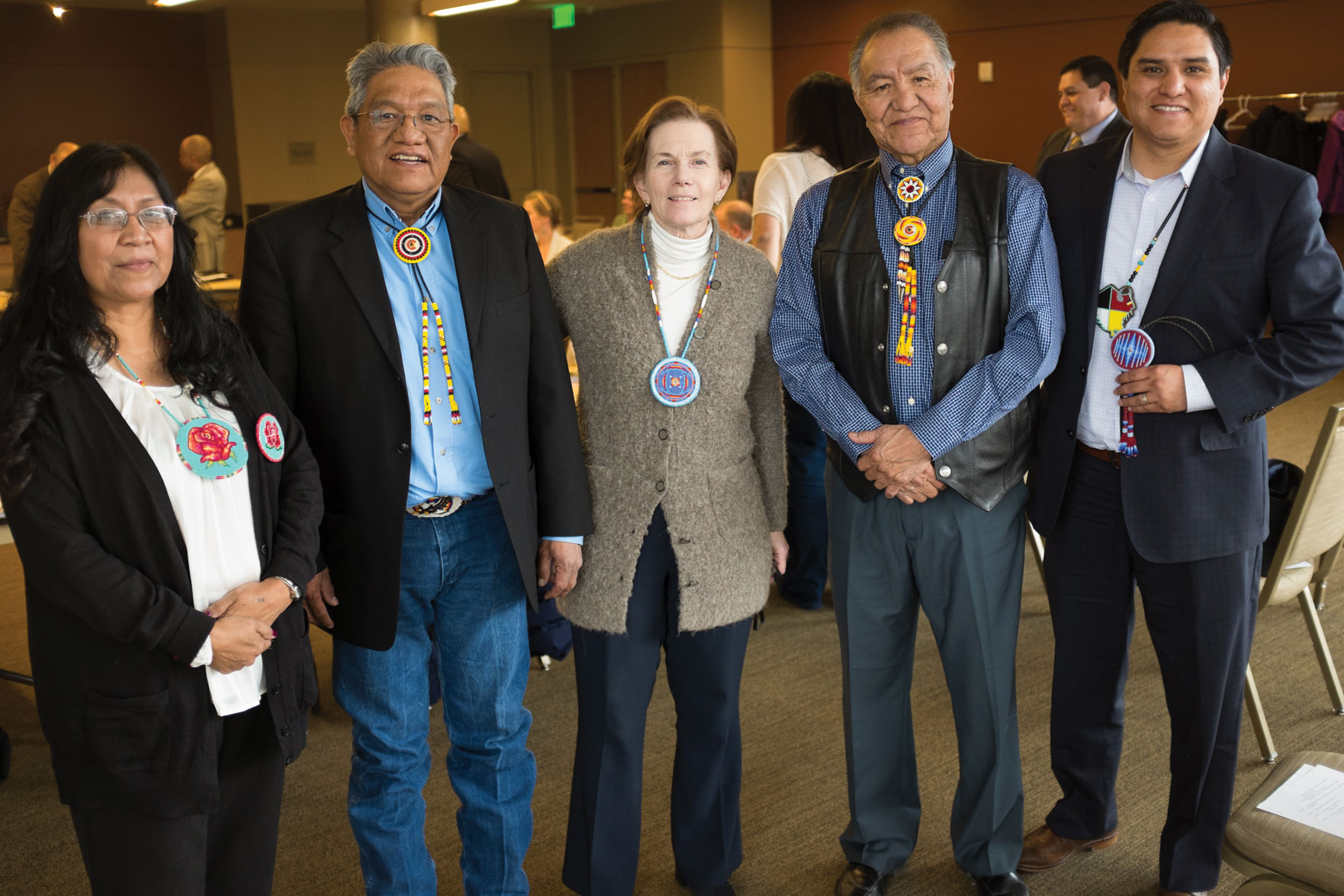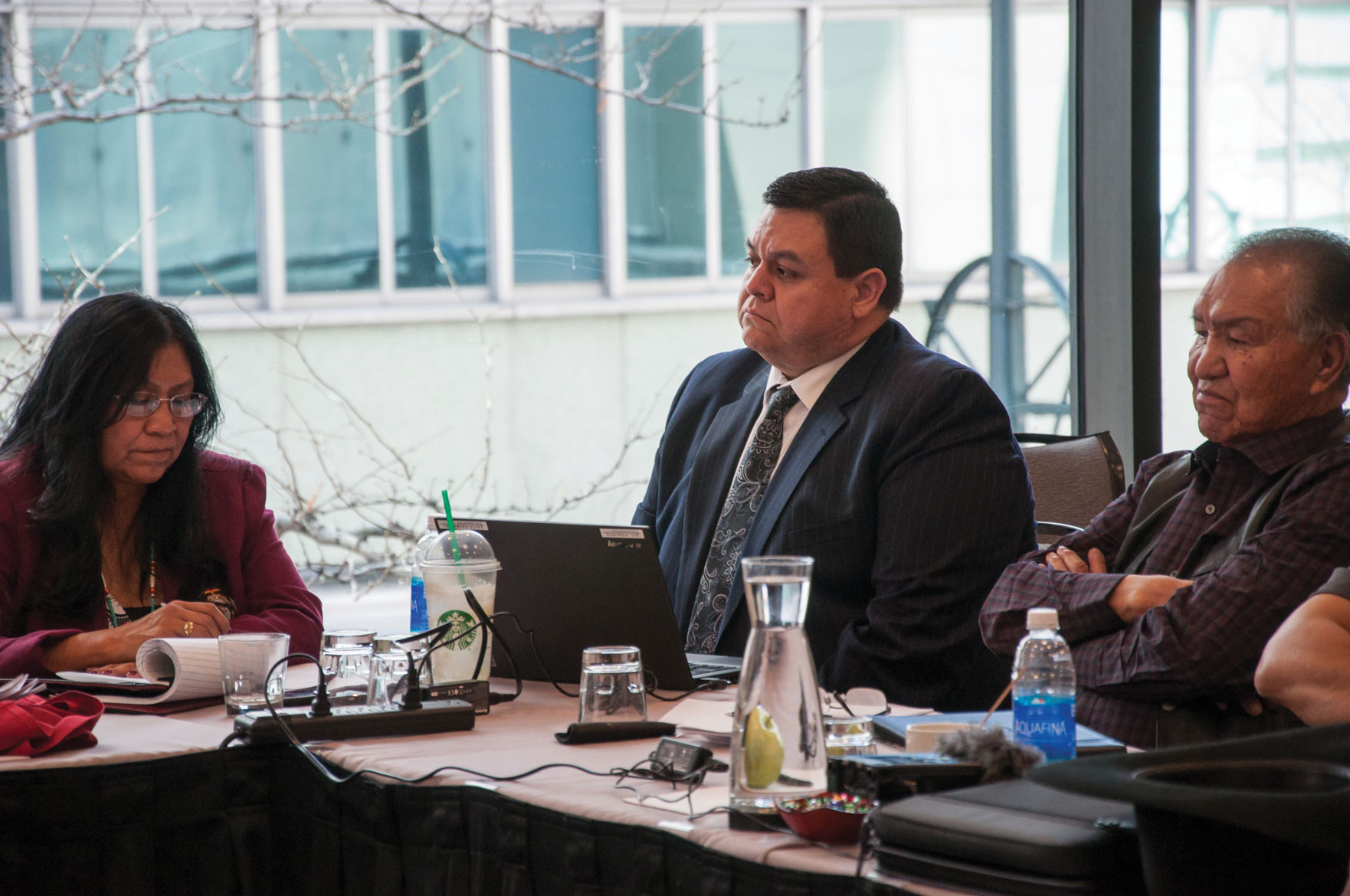Steeped in regional culture and vivid imagery, the History Colorado museum in downtown Denver proved to be an ideal location to host the Colorado Commission of Indian Affairs, Southern Ute and Ute Mountain Ute Tribes for a series of meetings held from Wednesday, March 22 – Friday, March 24.
Tribal Energy
Chris Deschene, Director Office of Indian Energy, US Dept. of Energy called the Colo. Ute tribes together to discuss the potential of an Intertribal Energy Association on Wednesday, March 22.
“Today’s energy includes renewable sources,” said Deschene, “we want to focus on clean energy stakeholders.”
“I wanted to speak to tribal leadership and see if this is even possible,” said Deschene, “we are looking for entities with a broader perspective.”
Not all tribes have oil, or natural resources,” said Deschene, “this [association] would help tribes become more proficient if they work together.”
CCIA
The upcoming opening of the Ute Museum in Montrose was a key topic for the Denver meetings. Representatives from History Colorado, working directly on exhibits in the new cultural center were on hand fielding questions and giving some behind the scenes updates for the project.
“[We are hoping] this museum will symbolize tribal sovereignty,” said Shannon Voirol, Senior Exhibit Developer with History Colorado.
Items to be included in the newly renovated exhibits will include Chief Ignacio’s headdress, clothing items from Chipeta and Chief Ouray and a never before seen deer hide painting.
The opening is set for Friday, June 9; this will be exclusively for members of the Ute tribes, followed by a public opening on Saturday, June 10.
“The museum building is doubled in size, the exhibits are doubled in size,” said Voirol, “We are thrilled by the donation of buffalo and fry bread by both of the Colorado Ute Tribes.”
The museum will host a traditional Native American feast for the opening in June.
Turning the conversation towards political affairs, Southern Ute Chairman Clement J. Frost gave an update for the Southern Ute Tribe.
“We have to march to The Hill to get recognition for the needs of the tribes,” said Frost in his opening remarks to the Colorado Commission of Indian Affairs. “The State and the Ute Tribes working together, I think that is what it’s all about.”
Frost then gave a brief update on the status of Lake Nighthorse.
“We are working with the City of Durango and Bureau of Reclamation to determine recreational use,” said Frost.
Recreational use of the reservoir, which sits just southwest of Durango, has been a hot topic of discussion ever since it was filled to capacity in 2011.
“We are also taking into account the Brunot Agreement in regards to hunting and fishing in that area,” Frost said.
Councilwoman Amy J. Barry updated the Commission on educational programs in Colorado looking to incorporate Ute culture and history into the school curriculum.
“Thank you to the State for the conversation of bringing our culture into schools,” Barry said.
“We are currently working with hashtag initiatives to empower our youth,” she said – elaborating on the importance of youth and education to the tribe.
Health Care, Education, Broadband Infrastructure and Energy were among the topics of discussion for Denver’s CCIA meeting.
Southern Ute Councilman Adam Red closed his thoughts by saying; “Energy is key to moving forward – with the environment in mind.”
Tri-Ute
Ute language was the leading topic going into the March Tri-Ute meeting . The meeting was held in downtown Denver at the Grand Hyatt Hotel on Thursday, March 23.
“Once the elders that spoke that language are gone you can’t go back,” said Northern Ute Chairman Shaun Chapoose. “We have to preserve what we can now.”
“It’s important to identify that the old Ute is different then that which is spoken today,” said Ute Mountain Ute Councilwoman DeAnne House.
“We all spoke Ute,” said Chairman Frost, referring to the old Tri-Ute councils, “We lost a lot of the power behind our words [when we lost the language].”
“It’s important that we help one another and bring that strength back,” Frost said.
The Bears Ears Monument was also of concern to each of the Ute Tribes.
Colorado U.S. Senator Michael Bennet sent a letter to the President and his administration in support of the Bears Ears National Monument and its importance to regional tribes. The following is a statement Bennet released to the Trump Administration.
“For years, the tribes and communities in the Four Corners region worked together to protect Bears Ears National Monument for future generations,” Bennet said. “The ancestral lands and cultural sites at Bears Ears are sacred to this region, including to the Ute Mountain Ute and Southern Ute Indian tribes of Colorado, both of whom strongly support this designation. Even to contemplate abolishing this new Monument before formally meeting with tribal leadership disrespects those who have had a deep connection with this land for centuries.”
“I encourage you to be proactive,” said Northern Ute Chairman Shaun Chapoose. “Tribes need to capitalize on the momentum.”
“Southern Ute supports Bears Ears,” said Frost. “The beliefs we hold on these sacred sites – those belong to us. These beliefs cannot be taken away from us by the non-Indian.”

